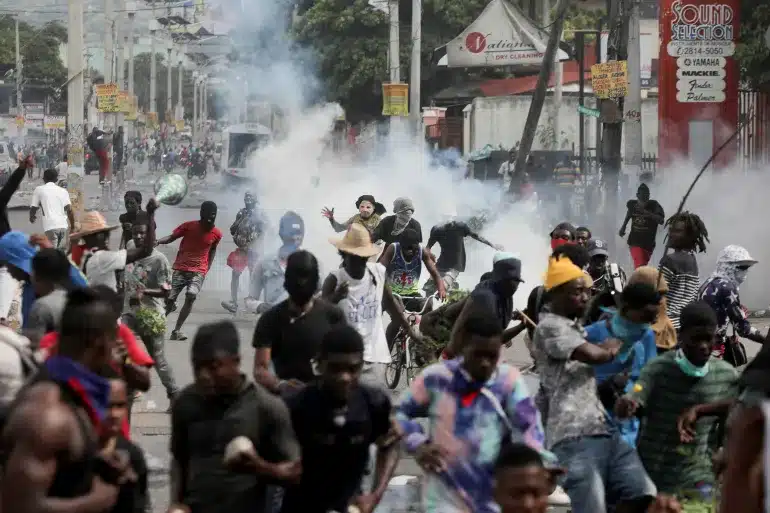
Major cities across Haiti were brought to a standstill on Monday as demonstrators clashed with police, calling for the resignation of Prime Minister Ariel Henry. The widespread protests saw the closure of banks, schools, and government agencies in the northern and southern regions of the country, with public transportation paralyzed due to roads being blocked by blazing tires, as reported by local media.
In Hinche, a city in Haiti’s central region, the protests gained momentum with the arrival of heavily armed state environmental agents led by their commander, Joseph Jean Baptiste. Addressing the crowd, Jean Baptiste openly called for Henry’s resignation, stating, “I want Ariel to stand in front of my bullets, so they go through him,” amidst cheers from the onlookers. The agents, part of the Security Brigade for Protected Areas, have recently been scrutinized by the government following clashes with police in northern Haiti.
Meanwhile, in the capital, Port-au-Prince, smaller demonstrations unfolded in front of Henry’s office. Police resorted to firing tear gas to disperse the crowd, which included presidential candidate and former Prime Minister Claude Joseph. A video circulated showing Joseph wiping his face while supporters chanted, “We are not stopping!”
The protests, expected to last at least three days culminating on today, are part of a broader movement demanding Henry’s resignation by February 7. This date holds historical significance in Haiti, marking both the departure of former dictator Jean-Claude Duvalier in 1986 and the inauguration of Jean-Bertrand Aristide, the country’s first democratically elected president, in 1991.
As Haiti braces for continued unrest, the calls for Henry’s resignation underscore the deep political and social challenges facing the nation. The government’s response to the protests and the potential for change remain uncertain as the country navigates this turbulent period.


